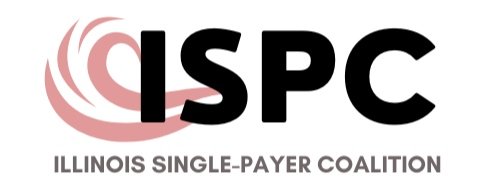Labor Outreach Committee
Talking Points For Labor: Single-Payer Health Care
What Expanded and Improved Medicare for All Would Mean for Organized Labor
Everybody who lives in the United States has comprehensive health insurance, unrelated to employment. Therefore:
health insurance is off the bargaining table, for employees and dependents
health insurance is not interrupted by job loss, lay-off, strike, or any other period of unemployment
need for health insurance is not a barrier to changing jobs or careers
need for health insurance is not a barrier to early retirement, opening up jobs for younger people
no incentive for employers to reduce hours or shift to temp workers to avoid paying for their health insurance
no incentive for employers to avoid older workers because of their health care costs
workers who stand up for their rights can’t be threatened with loss of health care for themselves and their families
Attention to work-related health and safety is a central public health issue, with prevention of illness and injury as the primary goal
When suspected or known occupation-related illness and injury occur: no treatment delays due to workers comp and regular insurance fighting to avoid responsibility; free choice of providers as for all other care; all necessary care fully covered, regardless of geographic area and regardless of cause; workers have unrestricted choice of medical experts for legal purposes
Employers save all the costs of administering health insurance
Workers’ private health information not available to employers
Employers of workers and family members who have or develop serious illnesses not penalized by higher insurance premiums
No tiers of health insurance benefits to divide workers and weaken unions
Full-time volunteer work and starting one’s own business are more feasible, opening up employment opportunities for those who need them
Gets rid of the competitive disadvantage for employers who offer health insurance compared to those who don’t
Employers can’t shed retiree health insurance benefits through bankruptcy scams
No tax penalties for having good health insurance
No change in benefits or providers at retirement or at other changes in employment
Improved competitive position for American companies in the global market
Better benefits: all necessary medical care covered under one plan
Lower cost: no premiums, deductibles, co-pays, co-insurance, or non-covered services; most people pay less
Progressive financing: those who have more money pay more, those who have less money pay less
Money used to purchase health care instead of going to administrative overhead, including insurance company profits and executive compensation
Complete choice of providers
No insurance company interference between patients and doctors
Portable throughout the United States
No one with a contagious disease unable to get care
No one goes bankrupt over medical bills; no one loses health insurance because of getting sick
Patients and families don’t waste time fighting with insurance companies; anxiety over medical bills doesn’t interfere with recovery
Improved general population health
Since everyone will have insurance, it will be financially viable to have community hospitals as well as outpatient care (family practice, dental and eye care, and mental health care) in all communities; furthermore, the health plan administration will be responsible for matching resources to need
Money currently allocated to health benefits under multi-employer plans will go to other benefits or into workers' checks
Enhanced social solidarity: we are all in the same system instead of being pitted against each other; we all have an incentive to fight for a high quality system
